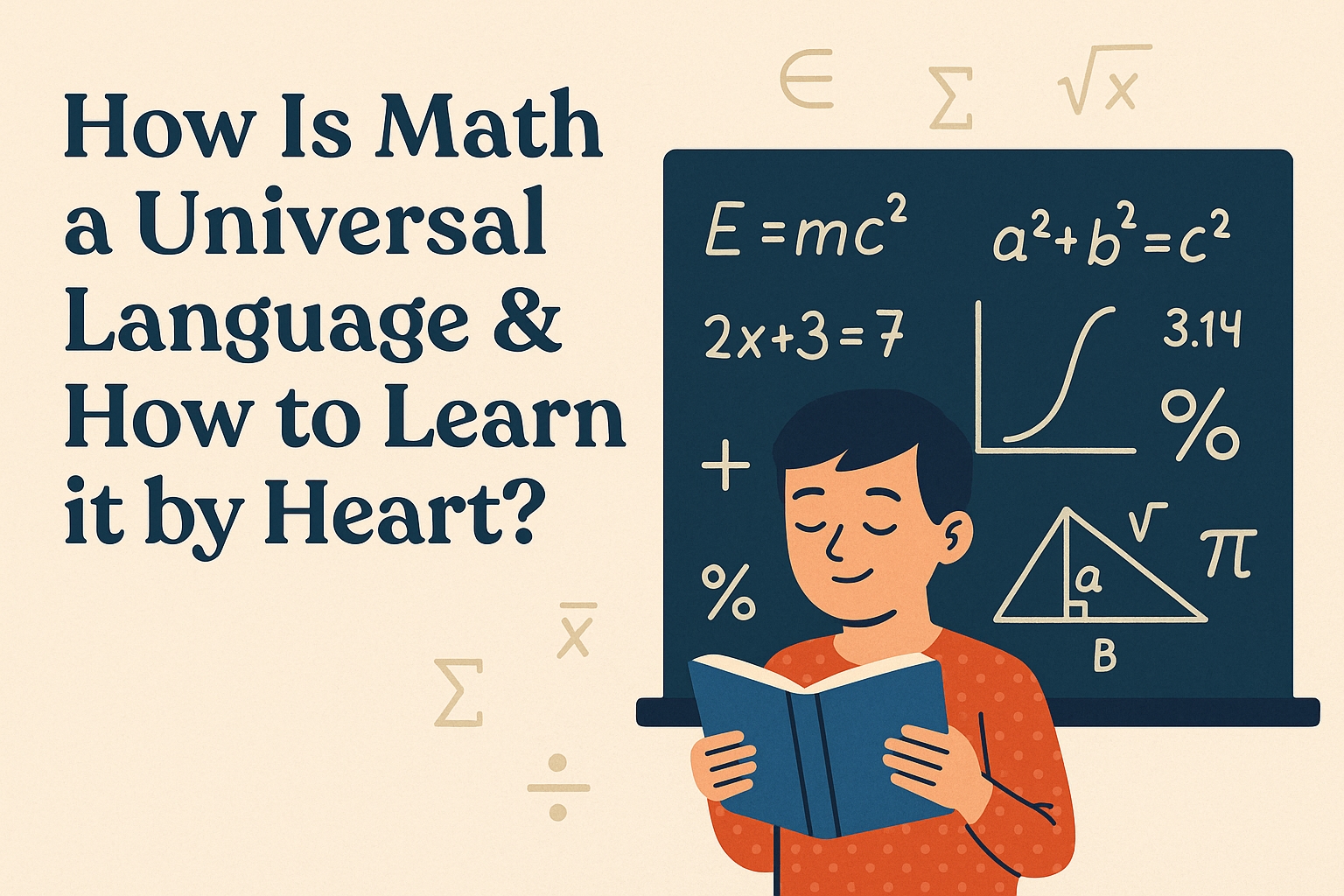
It is surprising to realise that every other task is to some extent related to math. Math as a subject is notoriously famous for being seen as complicated. This can be true in some cases, but not entirely. Simple tasks, such as counting bills, planning the commute to work, and learning a business or an instrument, all involve maths. Hence, once one gets to see math beyond the textbook, it becomes easier to understand and appreciate this subject.
Many students feel anxious just by hearing the name. This leads them to seek alternative solutions, such as reaching out to services like 'do my math homework'. But once one understands the core concepts and the process of dealing with maths, it becomes easier. Understanding maths properly not only reflects on the grades but also helps build confidence. So, let’s have a look at how maths is everywhere and how to learn it by heart.
How is math known as a universal language?
Math is one subject that remains the same to a great extent. It transcends culture, language and region. One of the reasons is that it is such a crucial part of everyday life. Let's understand through these points why it is universal.
Numbers and similarities: The chronology of numbers and even the symbols in many languages is the same. Be it Japan or Colombia, the symbol for the number “1” is similar. This hints at the similarities in the number pattern, hence proving the point.
Formulas and rules stay the same: Math consists of a lot of formulas. And these formulas are standard versions that stay the same. For instance, the formula to find the area of a rectangle, i.e., length * width, remains the same worldwide. Whether one learns from a university in Portugal or Cuba, the formulas remain the same.
Links with other subjects. It is very interesting to note that maths plays a big role in many other subjects as well. Some of which are engineering, economics, architecture and medicine. All of these fields deal with logic and digits rather than words.
Communicates without words: Math is also popular for putting forth complicated ideas simply. Without speaking, one can explain a point and an idea through math. Many complex theories and sums are purely number-based.
How to learn maths by heart?
Math is a subject that can’t be learnt through rote memorisation. Even to learn the formulas, one has to learn them in context. Here are some ways to master maths without losing your mind:
Practice regularly: When it comes to maths, practice is the sole thing that can help improve skills. Consistent practice every day for even 20 minutes can make an impact. Learning is a slow and gradual process which becomes effective with practice.
Understand, don’t mug up: Learning a concept or a formula without context can be quite confusing. To learn formulas, it is important to know how and where they are useful. For example, learning E=mc² is not enough; it is important to know that it shows that mass and energy are interchangeable.
Learn through examples: Learning maths becomes more fruitful if we apply it to real-life examples. For instance, while calculating bills, measuring time, or applying discounts, make use of the formulas to make the process simpler. This way, learning becomes both fun and practical. Further, to find more examples and practice questions, check out Instant Assignment Help.
Solve across levels: Like any other skill, building math skills has different levels. To make it easier to understand, start with the easy-level question first. Another thing to note here is that even the complex sums are based on the base-level methods. So, learning each level can gradually reflect in confidence as well as grades.
Use digital tools: With the rapid progress in technology, there are many effective ways to sharpen math skills online. There are different forms of learning and practice materials available, some of which are also free. For example, quizzes, flashcards, study tips and resources. Further, one can also find editing and writing tools, like a free Harvard referencing generator, to make the homework process easier.
Tips to make learning more effective
Firstly, make flashcards to learn the formula. And rather than simply saying the formula, try to give context to it as well.
Next, learning through teaching is another trusted method. Try teaching the concepts to remember them better.
Further, rather than tackling long problems at once, break them down into sections to make them less overwhelming.
Try to self-learn more techniques and tips through online resources.
Lastly, while preparing for exams, try to time the answering speed.
Conclusion
The more we learn about maths, the more interesting it gets. To put it simply, maths is a mixture of logic, digits, precision and structure. It is useful to solve real-life as well as textbook problems. Everything from building houses to paying bills, counting calories, and grades includes numbers. There are easier and faster ways to solve sums through online services like do my math homework. But it is truly a magical experience to learn math in all its glory. As a skill, it will help in both academics and real life. And might open a door to the wonderful world of numbers.
Also Read - Why Are Students Made to Write Dissertations or Theses?
